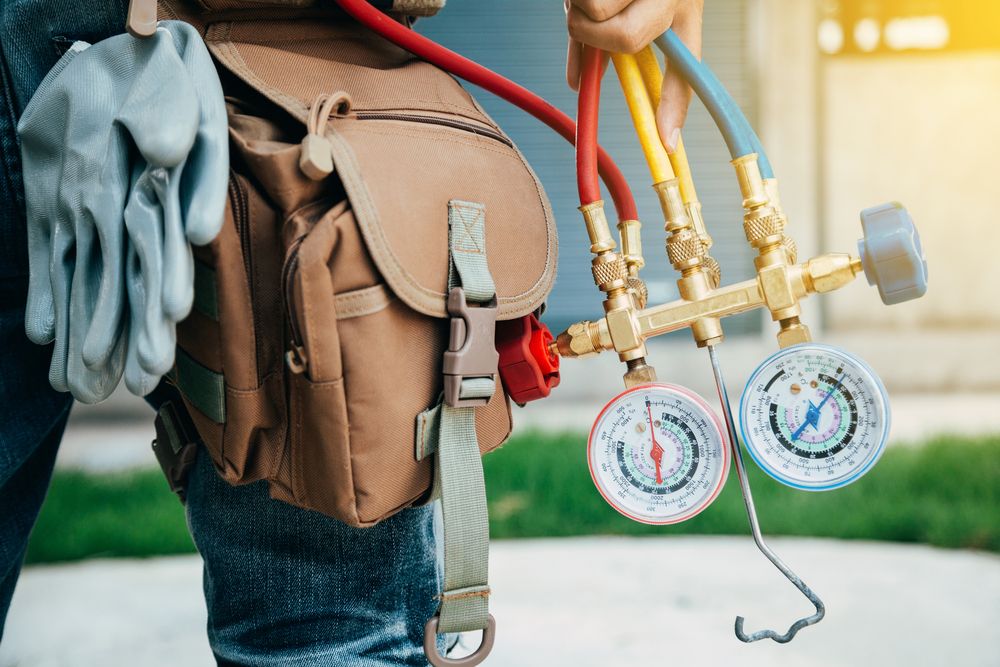Energy-Efficient Cooling And Heating Equipments to Save Money On Utility Expenses
As power expenses continue to climb, the importance of energy-efficient Cooling and heating systems comes to be progressively obvious. These systems not only guarantee substantial savings on utility expenses but also add to an extra sustainable future by lessening power intake.
Advantages of Energy-Efficient HVAC Systems
Energy-efficient cooling and heating systems supply many advantages that prolong beyond mere expense savings. One substantial benefit is the minimized environmental impact. By eating less power, these systems add to lower greenhouse gas exhausts, helping to fight environment adjustment and advertise sustainability. This lines up with enhancing societal demands for green techniques in property and commercial settings.
In addition, energy-efficient heating and cooling systems typically offer enhanced comfort levels. A lot of these systems include innovative modern technology that enables for better temperature control and boosted air quality (DMAKS HVAC). This leads to a much healthier indoor environment, which is specifically vital for individuals with allergic reactions or breathing concerns
Moreover, purchasing energy-efficient HVAC systems can enhance residential or commercial property value. As more customers focus on energy efficiency, homes and buildings furnished with these systems might attract higher proposals in the real estate market.
Kinds of Energy-Efficient A/c Options
How can homeowners and services choose the most appropriate energy-efficient HVAC choices for their demands? The market provides a selection of energy-efficient HVAC systems, each made to enhance convenience while decreasing energy intake.
One choice is the variable cooling agent flow (VRF) system, which effectively controls the temperature level in several zones within a building. This system adapts its refrigerant flow to match the wanted temperature, leading to significant energy financial savings.
An additional preferred choice is geothermal heat pumps, which utilize the planet's steady temperature to warmth and great rooms. By moving warmth to and from the ground, these systems show outstanding effectiveness, specifically in modest environments.
In addition, ductless mini-split systems supply an energy-efficient option for homes doing not have ductwork. These systems enable zone-specific home heating and air conditioning, minimizing power waste in vacant areas.
Lastly, high-efficiency furnaces and air conditioners, with advanced SEER and AFUE ratings, offer trustworthy environment control while taking in less power than traditional designs. By evaluating these alternatives, home owners and companies can pick a cooling and heating system tailored to their certain demands and energy performance objectives.
Secret Attributes to Consider

Following, investigate the kind of compressor utilized in the system. DMAKS HVAC. Variable-speed compressors can change their output to match the home heating or cooling down demand, causing improved comfort and power financial savings contrasted to single-speed models. Furthermore, seek systems furnished with smart thermostats that provide programmable settings and remote accessibility, enabling much better control over power consumption
Another crucial attribute is the system's air purification capability. High-efficiency filters can enhance indoor air quality and minimize power usage by guaranteeing the system operates successfully. Moreover, take into consideration the kind of cooling agent used; modern-day systems frequently employ eco-friendly refrigerants that have a reduced environmental influence.
Finally, make certain that the system is suitable with zoning technology, which permits for customized temperature level control in various locations of your home, boosting convenience while decreasing energy use.
Tips for Picking the Right System


Next, consider power effectiveness rankings, specifically the Seasonal Energy Effectiveness Ratio (SEER) for cooling systems and the Annual Gas Usage Effectiveness (AFUE) for heating unit. Higher ratings suggest higher effectiveness, which can bring about significant savings on energy expenses with time.
Furthermore, review the kind of heating and cooling system that finest fits your way of life and budget plan. Choices consist of central air, ductless mini-splits, and warmth pumps, each with its own set of benefits and drawbacks.
Don't neglect the hop over to these guys relevance of appropriate setup and sizing; an improperly sized system can result in ineffectiveness and increased wear. Consult with a specialist Cooling and heating professional to obtain expert recommendations tailored to your home's special demands. This extensive method will certainly guarantee that you select an energy-efficient cooling and heating system that fulfills your demands and spending plan successfully.
Maintenance for Ideal Performance
Once the best cooling and heating system is in location, ongoing maintenance ends up being essential to ensuring optimum efficiency and longevity. A properly maintained system runs better, leading to lower energy intake and decreased utility expenses. Normal examinations and tune-ups ought to be scheduled at the very least two times a year-- as soon as before the cooling season and as soon as before the heating period.

Homeowners should also be vigilant about monitoring their heating and cooling system's performance. Uncommon sounds, changing temperatures, or boosted power costs can suggest underlying problems that call for prompt attention. By addressing these worries quickly, homeowners can avoid expensive fixings and prolong the life-span of their systems.
Spending in an upkeep strategy with a certified specialist not just enhances effectiveness but likewise supplies tranquility of mind, recognizing that the system is running at its ideal. DMAKS HVAC. Normal upkeep try here is as a result necessary for maintaining power effectiveness and reducing general operational expenses
Final Thought
In final thought, energy-efficient a/c systems provide a viable solution for lowering energy costs while boosting convenience and air high quality. By integrating advanced innovations and alternatives such as geothermal heatpump and ductless mini-splits, building owners can attain considerable energy savings and add to ecological sustainability. Mindful consideration of system functions and recurring maintenance further ensures optimum performance, making energy-efficient systems a prudent financial investment for both economic and environmental benefits.